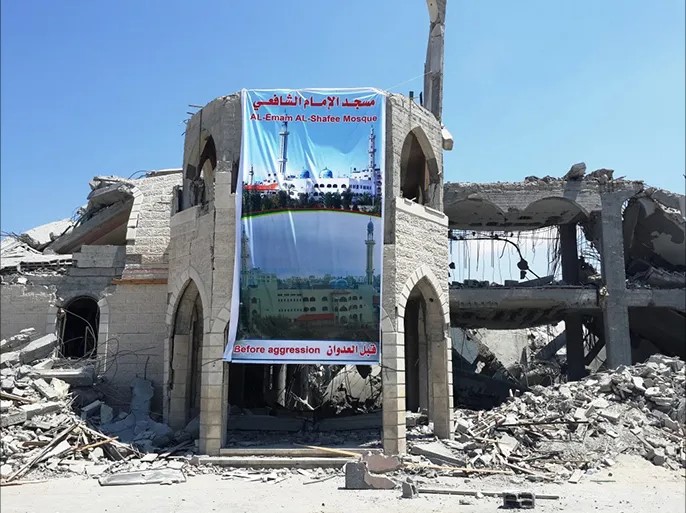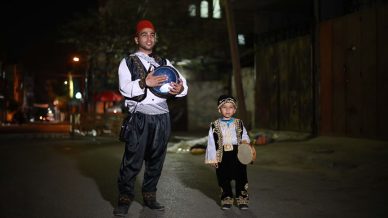GAZA, (PIC)
Amid the widespread devastation caused by Israel’s war on Gaza, residents are facing an unprecedented spiritual struggle as the holy month of Ramadan begins. Performing religious rituals, especially communal prayers and Taraweeh, has become incredibly difficult.
With more than 1,109 mosques either completely or partially destroyed, entire neighborhoods in Gaza have been left without places of worship. As a result, residents have turned to alternative solutions, such as praying in the streets or inside makeshift tents in displacement shelters.
“No Call to Prayer” – A Ramadan without minarets
Ikrami Al-Madallal, Director of Public Relations and Media at the Ministry of Endowments, stated in a press interview that the destruction of mosques has significantly altered the atmosphere of Ramadan. Many residents can no longer hear the call to prayer due to the loss of minarets and loudspeakers, forcing them to estimate the times for iftar (breaking the fast) and suhoor (pre-dawn meal) on their own in the absence of functioning infrastructure.
He added that Israeli forces deliberately targeted mosques, leading to the loss of worship spaces and the disruption of communal worship practices such as Taraweeh, Qiyam al-Layl (night prayers), and communal iftars, all of which were essential elements of Ramadan’s spiritual ambiance.
According to the Ministry of Endowments, Israeli airstrikes and shelling targeted 1,109 mosques out of 1,244 across Gaza—89% of the total. Of these, 834 were completely leveled, reduced to rubble, while 275 sustained severe damage, rendering them unusable. This has had a direct and profound impact on the ability of residents to practice their religious rituals and perform prayers.
The psychological and social impact of mosque destruction
For the people of Gaza, losing mosques is not just about the absence of prayer spaces; it is the loss of a vital hub for spiritual and social connection.
Mosques have long served as a refuge during difficult times, fostering community bonds through Quran study circles, religious gatherings, and communal iftars. Now, with these aspects of Ramadan disappearing, residents are experiencing a deep sense of spiritual isolation and detachment from the faith-filled atmosphere they once cherished.
Makeshift prayer spaces without electricity or ablution facilities
In an attempt to alleviate the crisis, Al-Madallal explained that the ministry has managed to set up temporary prayer spaces using tents and available wooden structures, particularly in displacement camps. However, these makeshift mosques suffer from severe shortages of basic necessities, including ablution areas, lighting, and clean water.
Many residential areas are now completely devoid of mosques, making it extremely difficult to establish alternative prayer spaces due to a lack of resources, ongoing electricity shortages, and continuous attacks.
A systematic targeting – erasing Gaza’s religious identity
Al-Madallal emphasized that the destruction of mosques is not merely collateral damage of war but rather part of a deliberate strategy aimed at erasing Gaza’s religious identity and deepening the suffering of its people.
He pointed out that Gaza currently lacks functioning loudspeakers for the call to prayer, and even the remaining minarets are silent due to electricity blackouts. Harsh weather conditions have further complicated efforts to establish suitable temporary prayer spaces.
“The Call to Prayer Will Not Disappear” – A message of resilience from Gaza
Despite all these challenges, the people of Gaza remain steadfast in their faith, insisting that the call to prayer will never fade from their hearts and minds, even if the minarets have fallen. Every prayer offered in the streets or inside a small tent carries a clear message:
“No matter how many mosques are destroyed, our faith will always be stronger than war.”













